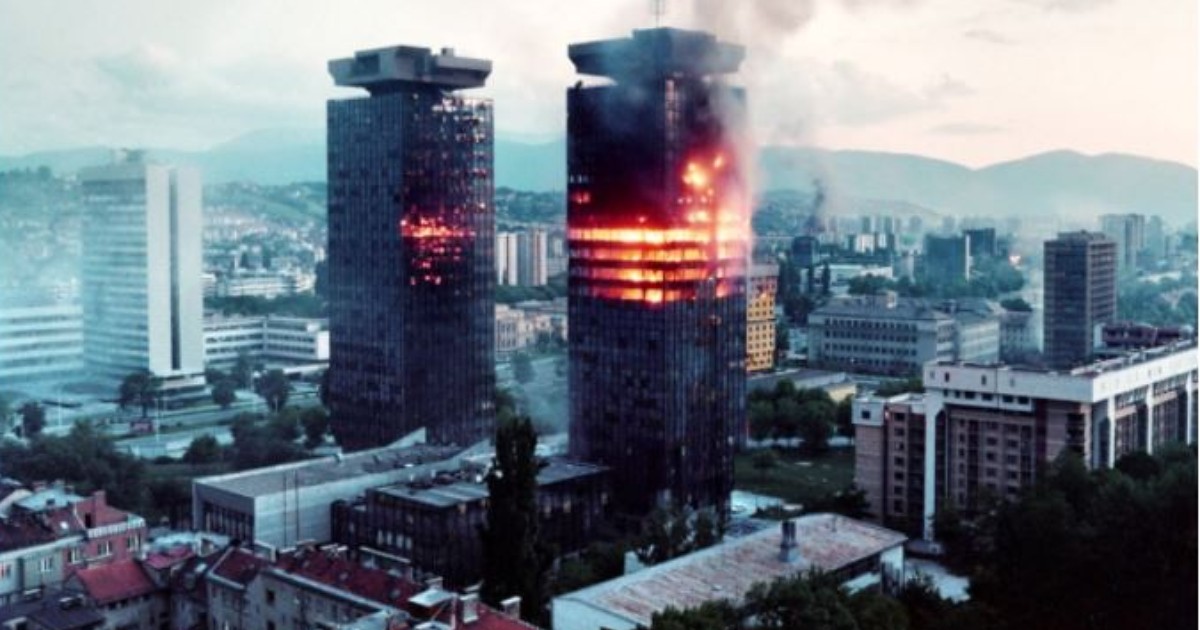A vice continued for over 1,400 days which tore around the waist 12 thousand people. 30 years after the start ofsiege of Sarajevo these numbers return to the memory of its inhabitants who watched helplessly the destruction of their homes at the hands of the gods Serbian nationalists who wanted to prevent the independence of the Bosnia Herzegovina from the Yugoslavia. Imagine the war in Ukraine reported to the news. But between the two situations there is a distinction that many Sarajevese and many Bosnians point out: at the time, despite the evident imbalance of forces between the aggressors and the attacked, the latter had to resist with very few weapons or find through alternative channels. With resolution 713, the United Nations in fact, they imposed an embargo on all war supplies in the territory of Yugoslavia. The official aim was to prevent a widening of the conflict. However, such a decision backfired against the besieged, who found themselves dealing with military formations that could exploit the arsenal of the Yugoslav army.
Although in the collective imagination the Bosnian capital is the symbol of the devastation of that conflict, the same fate struck a large part of the country’s city. One of these was Bosanska-Krupa, in the northwest. That’s where Emir Sedicthen in his early twenties, he cherished the dream of becoming a professional soccer player. The war caught him that he was still wearing the uniform in which he played football and he did not imagine that he would have to replace it with another as a soldier. “When it all started we literally ran to the outskirts of our city in overalls and jeans to defend our families, to allow the evacuation of women, children, the elderly. Available we didn’t have many weapons – remembers Emir speaking to Ilfattoquotidiano.it – We organized ourselves overnight to resist an enemy who, on the contrary, was super equipped ”.
At that time there was not even room for a debate on the issue of weapons, because the embargo was placed from the beginning. During the years of Marshal Tito, the real army was only that of Yugoslavia. The six republics that made up the Federation were equipped with simple territorial defenses, completely insufficient to face the war that overwhelmed the Balkans in the spring of 30 years ago. It was mainly the civilians to organize the defense by forming armed with volunteers.
So, from one day to the next Emir stopped being a footballer and student, and became captain of the 511th Mountain Brigade which contributed to the liberation of northwestern Bosnia. TO Cazin civilians and soldiers built a small factory for the local weapons production. Many of these, however, were merely experiments. The embargo imposed by the Western world also forced Bosnia to seek help in the countries of Middle Eastwith which he started a trade in smuggled arms by virtue of the common Islamic faith.
“What happened in Bosanska Krupa reminds me of what now happens to Mariupol, Kherson and Kiev – says Emir – There are many similarities and yet differences in the aggression of Russia against theUkraine and that of Serbia against Bosnia-Herzegovina. First, in both cases history and facts have been distorted. The Serbs denied the existence of an identity of Bosnia and Herzegovina just as Russia did with Ukraine ”. Another similarity is that “both attackers were aiming for a sudden and rapid attack to conquer the capital and establish a puppet government ”. However, Emir is also keen to underline the differences: “The Ukrainians have gained independence fromSoviet Union in the 90s and the real crisis began in 2014, with the annexation of the Crimea and the attacks on the region of Donbass. They have had more time to prepare, have their own official army and open borders with theEU. In our country it all started in a few days, there was not even a way to realize what was happening. We didn’t have a proper military apparatus. But despite this, the international community has not given us any help with weapons, contrary to what is happening now with the government of Kiev ”.
Emir was wounded many times in combat, even severely, but he continued to fight until the end of the conflict. He was recognized 90% war invalid. Today he works like football coach and as host on Bosanska Krupa local radio. He is also the creator of “Football No Limits”a project that combines sport and volunteering, carried out in collaboration with the NGO Ipsia. “My story is the same as that of other Bosnians – he concludes – Students, waiters, workers, athletes, farmers, miners. They got up and stood almost bare-handed against the then 4th military force in Europe”.
–


